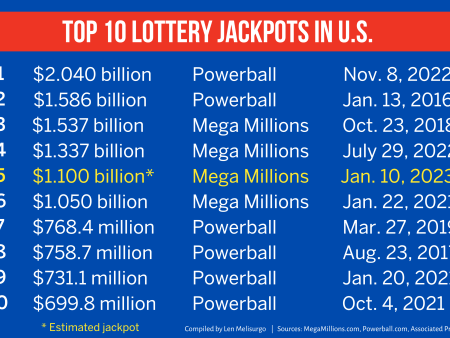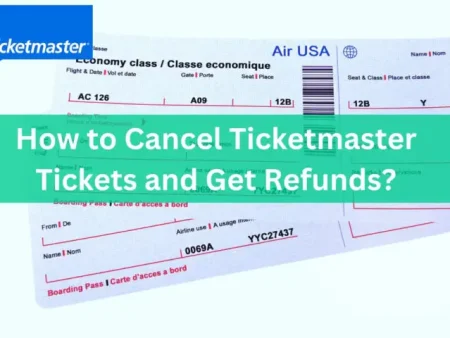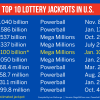Learn to identify legitimate prize notifications by verifying sender details, avoiding requests for sensitive info or payments, and cross-referencing contact information. Stay safe! Top Ten Lottery
How Do I Know If I’ve Won a Prize? Tips to Identify Legitimate Win Notifications
How Do I Know If I’ve Won a Prize? Tips to Identify Legitimate Win Notifications
In an age where digital communication is ubiquitous, receiving a message stating you’ve won a prize can be both thrilling and bewildering. The question, “How do I know if I’ve won a prize?” often springs to mind as you navigate the sea of emails, text messages, and social media notifications. While the excitement of potentially winning something valuable is enticing, it’s crucial to approach such notifications with a discerning eye. This article aims to equip you with the essential tips and knowledge to differentiate between legitimate win notifications and fraudulent schemes, ensuring that your prize-winning experience is both genuine and secure.
When you receive a notification claiming you’ve won a prize, it can come from various sources such as emails, text messages, phone calls, or social media platforms. Legitimate prize notifications often come from contests or sweepstakes that you have knowingly entered. These might include online giveaways, promotional events by reputable brands, or even community raffles. It’s essential to recall if you participated in any such activity to validate the legitimacy of the notification.
However, not all prize notifications are genuine. Scammers often exploit the excitement of winning to lure victims into providing personal information or making payments. Common red flags include unsolicited messages from unknown sources, requests for sensitive information like your Social Security number, or demands for payment to claim your prize. Always verify the sender’s identity and cross-check with official contest rules or the company’s website before taking any action.
To protect yourself from scams, keep a record of the contests you enter and be cautious of unsolicited prize notifications. Authentic companies will never ask for payment or sensitive personal information upfront. By staying informed and vigilant, you can enjoy the thrill of winning without falling prey to fraudulent schemes.
When you receive a prize notification, it’s crucial to be aware of common red flags that may indicate a scam. One major warning sign is if the message comes from an unsolicited or unknown source. Legitimate prize notifications usually come from contests or sweepstakes you’ve entered, so if you don’t recall participating, it’s a reason for caution. Additionally, be wary of messages that contain poor grammar, spelling mistakes, or generic greetings like “Dear Winner.” Reputable companies typically ensure their communications are professionally written and personalized.
Another red flag is if the notification asks for sensitive personal information such as your Social Security number, bank details, or passwords. Genuine prize notifications will not require you to disclose such information upfront. Scammers often use this tactic to commit identity theft or financial fraud. Similarly, be cautious if the message asks for a payment to claim your prize. Authentic contests will not require winners to pay any fees or charges; they should cover any costs associated with the prize.
Lastly, always verify the legitimacy of the prize notification by cross-checking the details with official sources. For instance, visit the company’s official website or contact their customer service directly using verified contact information. Avoid clicking on suspicious links or downloading attachments from unknown emails as they could contain malware. By staying vigilant and recognizing these red flags, you can protect yourself from scams and enjoy your winnings with peace of mind.
Official verification processes play a crucial role in distinguishing legitimate prize notifications from fraudulent ones. These processes are designed to ensure that only genuine winners can claim their prizes, thereby protecting both the contest organizers and the participants. Typically, official verification involves cross-referencing the winner’s details with the information provided during the contest entry. This might include confirming your name, contact information, and sometimes even answering specific questions related to the contest. By undergoing this verification, you can be assured that your prize is authentic and that you are dealing with a reputable organization.
One of the key components of an official verification process is direct communication from the contest organizers. Legitimate companies will often reach out to winners through multiple channels, such as email, phone calls, or even postal mail, to ensure they can verify your identity accurately. They will also provide clear instructions on how to claim your prize, often directing you to their official website for further steps. This multi-step approach helps eliminate confusion and reduces the risk of falling prey to scams.
For those wary of scams, understanding the role of official verification processes can provide peace of mind. If you receive a prize notification, always look for signs that the organization is following a structured verification protocol. Avoid engaging with sources that rush you into providing personal information or making payments. Instead, take the time to verify the legitimacy of the notification through official channels. This extra step can safeguard your personal information and ensure that your experience of winning a prize is both secure and enjoyable.
Safeguarding your personal information when claiming a prize is crucial to protecting yourself from scams and identity theft. First and foremost, ensure that the prize notification you received is legitimate by verifying it through official channels. Contact the company or organization directly using the contact information provided on their official website, rather than relying on links or phone numbers in the notification message. This step helps confirm that the prize is real and that you are dealing with a reputable source.
Once you’ve verified the legitimacy of the prize, be cautious about the type of information you share. Genuine prize claims will usually require basic details such as your name, address, and possibly an ID for verification purposes. However, they should never ask for sensitive information like your Social Security number, bank account details, or passwords. If you encounter a request for such information, it’s a red flag indicating a potential scam. Always read the privacy policy of the organization to understand how your data will be used and stored.
Finally, consider using secure methods to submit any required information. If you need to fill out forms online, ensure that the website uses HTTPS encryption, indicated by a padlock icon in the address bar. Avoid sending personal information via email or text message, as these methods are less secure. By taking these precautions, you can protect your personal information while enjoying the excitement of claiming your prize safely and securely.
Understanding the legal aspects of prize notifications is essential to ensure that you’re not only excited about your win but also protected from potential scams. Prize notifications are governed by various laws and regulations designed to protect consumers. For instance, in many jurisdictions, legitimate contests and sweepstakes must clearly outline the rules, odds of winning, and any potential costs involved in claiming a prize. These details are typically found in the official contest rules or terms and conditions, which you should review carefully before participating or claiming any prize.
One crucial legal requirement is the prohibition against requiring a purchase or payment to claim a prize. This is often referred to as “no purchase necessary” in contest rules. If a notification asks for money upfront, it’s likely a scam. Additionally, reputable organizations will comply with data protection laws, ensuring that your personal information is handled securely and used only for legitimate purposes. Always check for privacy policies and data handling practices when providing any personal details.
By understanding these legal aspects, you can confidently navigate prize notifications without falling prey to fraud. Knowing your rights and the legal requirements for contests can help you differentiate between legitimate opportunities and scams. Always take the time to verify the authenticity of the prize notification through official channels and be wary of any requests for payment or sensitive information. This knowledge empowers you to enjoy your winnings safely and legally.
If you suspect a prize scam, taking immediate and decisive action is crucial to protect yourself. First, do not provide any personal information or make any payments. Scammers often use the allure of a prize to collect sensitive details like your Social Security number, bank information, or even money. Instead, verify the legitimacy of the prize notification by contacting the company or organization directly through their official website or customer service number. Avoid using any contact information provided in the suspicious message, as it could be part of the scam.
Next, report the suspected scam to relevant authorities. In the United States, you can file a complaint with the Federal Trade Commission (FTC) at ftc.gov/complaint. Additionally, consider reporting the scam to your local consumer protection agency and the Better Business Bureau (BBB). These organizations can investigate the issue and potentially prevent others from falling victim to similar scams. Sharing your experience on social media and online forums can also help raise awareness and protect others.
Finally, take steps to secure your personal information. If you suspect that your data has been compromised, consider placing a fraud alert on your credit reports by contacting one of the three major credit bureaus: Experian, Equifax, or TransUnion. Regularly monitor your financial statements and accounts for any unauthorized activities. By staying vigilant and proactive, you can safeguard yourself from potential scams and ensure that any prize notifications you receive are genuine and safe to claim.
Popular scams posing as prize notifications are increasingly sophisticated, preying on the excitement and trust of unsuspecting individuals. One common scam involves email or text messages claiming you’ve won a large sum of money or a high-value item, such as a car or vacation package. These messages often come from unknown sources and use enticing language to prompt immediate action. Scammers may ask for personal information, such as your Social Security number or bank details, under the guise of verifying your identity to claim the prize. Always remember, legitimate contests will never ask for sensitive information upfront.
Another prevalent scam involves social media platforms where fraudsters create fake profiles of well-known companies or celebrities. They announce fake giveaways and ask winners to click on suspicious links or download attachments to claim their prize. These links can lead to phishing websites designed to steal your personal information or install malware on your device. To avoid falling victim, always verify the legitimacy of social media giveaways by checking the official page of the company or celebrity and never click on unverified links.
Lastly, phone call scams are also popular, where callers impersonate representatives from reputable organizations, informing you that you’ve won a prize. They often create a sense of urgency, pressuring you to act quickly by providing personal information or making a payment for “processing fees.” It’s crucial to stay calm and not rush into any decisions. Legitimate companies will not pressure you into sharing personal information or making immediate payments. By staying vigilant and informed about these common scams, you can protect yourself and ensure that any prize notification you receive is genuine.
Cross-referencing contact information is a crucial step in verifying the authenticity of a prize notification and safeguarding yourself from scams. When you receive a message claiming you’ve won a prize, it’s essential to independently verify the contact details provided. Instead of using phone numbers, email addresses, or links directly from the notification, visit the official website of the company or organization. Look for their customer service contact information and reach out to confirm the legitimacy of the prize. This simple step can prevent you from falling prey to fraudulent schemes that aim to steal your personal information or money.
Taking the time to cross-reference contact information not only ensures that you’re dealing with a reputable source but also adds an extra layer of security to your interactions. Scammers often create fake email addresses and phone numbers that appear legitimate but are designed to deceive you. By independently verifying these details through official channels, you eliminate the risk of communicating with impostors. This precautionary measure is especially important in today’s digital age, where sophisticated scams are increasingly common.
Ultimately, cross-referencing contact information provides peace of mind and helps you enjoy your winnings without worry. It’s an easy yet effective way to confirm that your prize notification is genuine, allowing you to proceed confidently and securely. Remember, legitimate companies will always have accessible and verifiable contact details on their official platforms. By being diligent and cautious, you protect yourself from scams and ensure a safe prize-claiming experience.
When you encounter a fraudulent prize notification, reporting it to the appropriate resources and organizations is crucial to protect yourself and others from scams. In the United States, the Federal Trade Commission (FTC) is a key resource for reporting such fraud. You can file a complaint online at ftc.gov/complaint, providing details about the scam to help the FTC investigate and take action. Another valuable resource is the Better Business Bureau (BBB), which allows you to report scams and check the legitimacy of businesses through their Scam Tracker tool. These organizations work tirelessly to track and combat fraudulent activities, ensuring a safer environment for consumers.
Additionally, your local consumer protection agency can be an excellent ally in addressing fraudulent prize notifications. They often have specific procedures for handling such complaints and can offer guidance on how to protect your personal information. For international readers, similar organizations exist in many countries, such as Action Fraud in the UK or the Australian Competition and Consumer Commission (ACCC). These agencies are dedicated to safeguarding consumers from scams and providing valuable resources for reporting fraudulent activities.
By utilizing these resources and organizations, you not only protect yourself but also contribute to broader efforts in combating fraud. Reporting scams helps authorities gather data needed to identify patterns and prevent future incidents. It also raises awareness among other consumers, making it harder for scammers to succeed. Always take the time to report fraudulent prize notifications to ensure a safer digital environment for everyone.
How do I know if I’ve won a prize?











